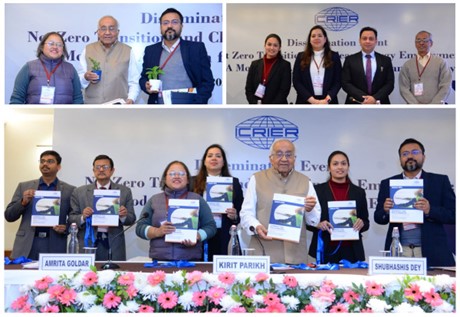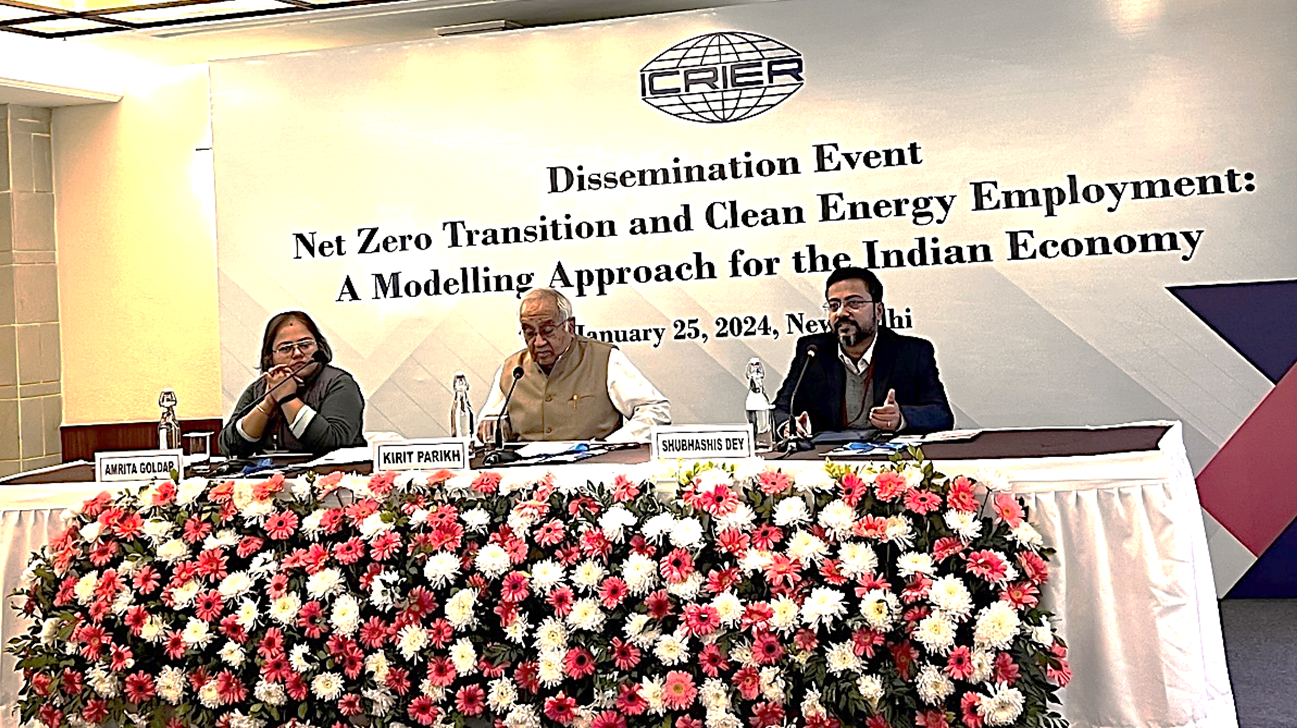ICRIER organised a workshop on ‘Net Zero Transition and Clean Jobs: A Modelling Approach for the Indian Economy.’ The event was held on January 25, 2024, at India Habitat Centre, New Delhi. The event discussed the power, buildings, and industrial sector landscape in India, with a focus on renewable energy (RE) as well as energy efficiency (EE). It was focused on the direct and indirect effects of employment, the forward and backward linkages, and the employment patterns arising out of these sectors.
The core of moving towards a net-zero future revolves around energy with the power sector playing a crucial role in this process of reducing carbon emissions. As India works towards fulfilling its Panchamrit strategy to combat climate change and limit global temperature rise to 1.5°C, it becomes pertinent to explore the employment impacts of transitioning to a cleaner energy system.

The event was divided into two sessions:
Session I, titled ‘State-level Clean Jobs Estimation,’ aimed to expound on the state-level impacts of transitioning towards non-fossil fuel power capacity in terms of clean job creation and associated skill requirements for achieving India’s RE and EE ambitions till 2030. While previous studies on job creation in the energy supply chain focused on the “why” and “how” of energy transition, the session concentrated on “where” the jobs were created using a spatial lens to gauge its direct impacts.
Session II, titled ‘Impact of Net-Zero Transition Policies on Clean Jobs, Skilling Needs, and Inter-state Migration,’ involved the launch of the ICRIER Unnati Regional Computable General Equilibrium (R-CGE) model. It examined the impact of elevated climate ambitions on employment creation and was designed to comprise 36 general economy sectors and five electricity sectors focusing on eight resource-rich states. The Unnati model specifically modeled the movement of labour between states to harness new opportunities in clean employment.

Shubhashis Dey, Director, Climate Policy & Climate Finance, Shakti, spoke at the inaugural session and said, “The pursuit of net-zero emissions is not merely a policy decision; it is a commitment to safeguarding our planet for the present and future generations. It is a recognition that economic growth and environmental responsibility can go hand in hand. To navigate this energy transition, our focus must be on the people – their jobs, their skills, their housing, and their mobility.”
Link to the full video of the event: https://www.youtube.com/watch?v=2ZT0ssv9cR8&t=15s
